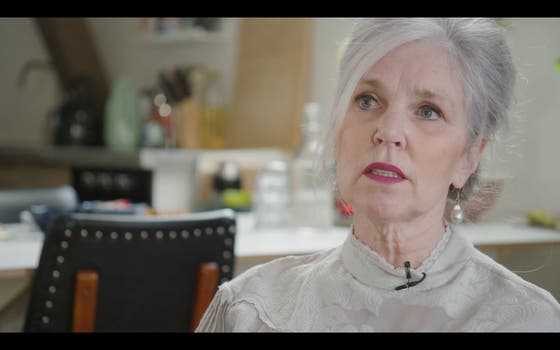Cullen lecture: the patient and the young doctor

Patients in a university medical center, in addition to contact with nurses, have contact primarily with doctors in training to become specialists (aios). These young doctors are the link between the patient and their loved ones and the medical specialist, under whose supervision they are trained. But what is a young doctor's role when something goes wrong in care and what does he or she need to deal with it properly? This was the theme of the Adrienne Cullen Lecture, held this week for the fifth time at the UMC Utrecht.
It still leaves you speechless: the story of Adrienne Cullen, who died of cervical cancer in 2018 as a result of a medical error at UMC Utrecht. For the fifth time, her call to be open and learn from medical errors formed the start of the annual Adrienne Cullen Lecture at UMC Utrecht. And still this is badly needed, moderator Astrid Janssens, professor of Patient and Public Participation, discussed with Remco van Lunteren, member of the UMC Utrecht Board of Directors. "Learning is the key word. We will continue to make mistakes, sometimes with major consequences. But there is a growing realization that we can learn from them to do better next time. Because of our academic task in training, we work with many young healthcare professionals in training. That is why this year we are paying special attention to the young doctor, who contributes to the care of the future," Remco van Lunteren said.
Being vulnerable and learning to reflect
In the lecture 'The patient and the young doctor', cardiothoracic surgeon and coach of young doctors Shirin Bemelmans-Lalezari focused on vulnerability: being vulnerable and sharing what you feel. As a patient, as a young doctor and as a supervisor. As a human being. But saying what bothers you, especially if you have made a (possible) mistake, is not always easy. The fear of the judgment of the other plays a role. As a doctor, having an eye and ear for your patient and their experience can make a world of difference for the patient. The bottom-up awareness that Adrienne Cullen calls for is therefore very important. But also vice versa, Shirin advocates that supervisors have a responsibility to create a safe environment for young doctors. So that they dare to share things and make themselves vulnerable in the existing position of dependency. Even when mistakes are made. This hinges on the ability to reflect. Learning to reflect as an important element to allow the role of the young doctor to be fulfilled as well as possible and thus keep the relationship with the patient and loved ones as pure as possible. In this, the supervisor is the example for the younger generation.
The story about Joost
The core of this fifth Adrienne Cullen lecture was the story about Joost. He underwent radical and complex treatment in the UMC Utrecht due to a life-threatening condition. In a personal video message, Joost's mother talks about what the treatment periods in the UMC did to her and her husband, how distraught they felt and how they noticed that important information about their son Joost's treatment was lost because of the many transfers and different health care providers and the lack of direction. And also how one young doctor stood out from other doctors. By doing what is most important at such an emotional time: having an eye for them as human beings.
Safe learning environment and regaining trust
The closing panel discussion reflected on the video and the clear message from Joost's family. "We made too many assumptions as doctors. Nice that a young doctor in this case suddenly did have an eye for Joost's family. That compassion allowed the family to just be there in their emotion and not have to fight. This created space for content," Shirin said. About what the young doctor needs to discuss mistakes or intense situations in a safe environment, Astrid spoke further with "young doctor" physician-researcher Fia Cialdella and oncologist and supervisor Filip de Vos. Fia cites an example where she felt supported by her supervisor. "That support allowed me to learn from it. It helped me a lot." As a supervisor, Philip was grateful that Fia came to him, "That way I could put myself on equal footing with her and we could find a way through this emotional situation together. For me an important lesson: first listen to someone's problem, have an eye for what the young doctor is feeling. Then it creates space to look at it substantively and learn." Fia brings this back to her patients. "First offer space for their feelings, then look at the content together. That's how I win back trust, even when mistakes have been made."
Less patient more human. Drawing this adage more broadly to "less doctor more human," Astrid concludes the fifth Adrienne Cullen Lecture.
View the fifth Adrienne Cullen Lecture here.
About the Adrienne Cullen Lecture
The 'Adrienne Cullen Lecture on Open Disclosure After Serious Harm' is held annually at the UMC Utrecht. The first lecture was held in 2018 when Ms. Adrienne Cullen and two of her doctors spoke openly about the medical error that led to her end-stage cervical cancer. Ms. Cullen passed away on December 31, 2018. This lecture is named after her so that as a hospital we can learn from things that go wrong and, through openness, prevent similar mistakes from being made again. Read more on our website.
